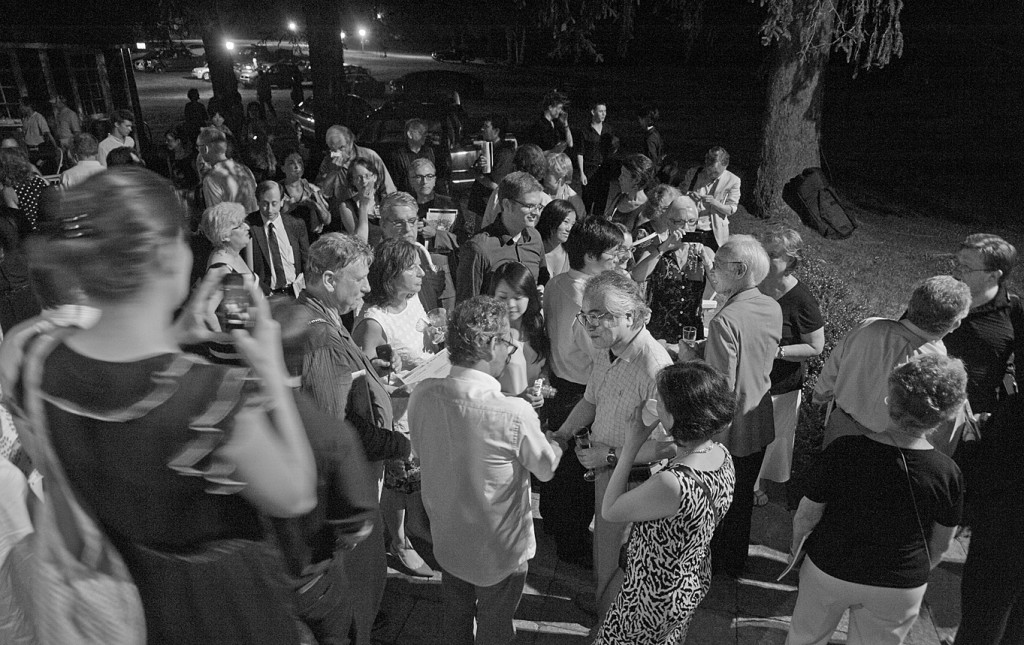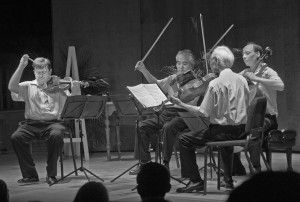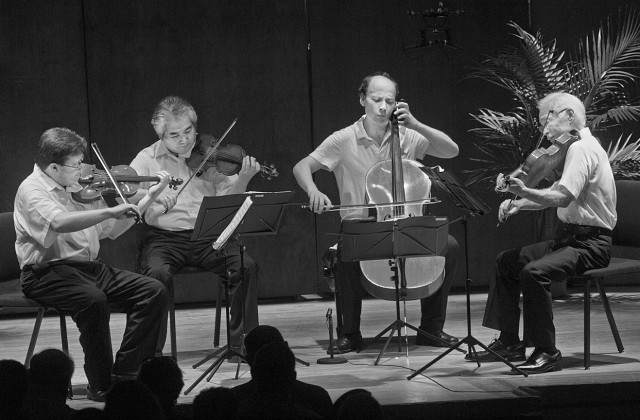A Passionate Swan Song

Photograph by Bruce Frisch
A packed hall enthralled by the Tokyo’s last-ever Norfolk concert
By Lloyd Garrison
Over 700 Tokyo String Quartet loyalists paid over $350 a ticket at the Yale Music Shed on July 6 for one last chance to hear the quartet in Norfolk.
Before they played a note, the four were greeted with a standing ovation. They proceeded to give an emotional and musically moving performance in which one could feel the energy flowing from the audience to the stage and between the player’s themselves.
New York Times critic Corinna da Fonseca-Wollheim wrote that the players seemed to be taking their farewells from one another. “Mr. Beaver and Mr. Isomura leaned in toward each other during a unison passage,” she wrote. “The other two responded with hushed chords. There was a little tremble on Mr. Beaver’s last, dying note.”
The program began with a taut, passion-filled rendering of Haydn’s String Quartet in G. A few in the audience could never recall having heard it played at such a tempo. Bartok’s complex and more jarring Quartet No. 6 was played with equal vigor, followed by Debussy’s much sweeter G minor quartet. The Times noted that “Mr. Beaver frequently pressed his lips together and raised his eyebrows as if surprised by something in the score.”
Underscoring just how long the Tokyo has been around, Yale’s James Nelson offered a timeline in the festival’s program, noting that in 1969, the year of the quartet’s founding, Sesame Street premiered on television and American astronauts landed on the moon.
Positions changed hands infrequently, but none of the originals, who met as students at Julliard in New York, remain.

The Norfolk Chamber Music Festival has been proud to present the Tokyo every summer since 1975. First violinist Martin Beaver heads up the current quartet, with Kikuei Ikeda playing second violin, Kazuhide Isomura, viola, and Clive Greensmith, cello. The four have also spent many weeks in residence here and at Yale in New Haven. Ameasure of their affection for Norfolk was their offer to donate their final fee to a fund for the shed’s much needed restoration.
A second standing ovation greeted their final note in the Debussy, but a foot stomping audience obliged them to return with an encore, another Haydn Quartet, this one in G minor.
“As an encore,” wrote Fonseca-Wollheim, “the palpable sense of playfulness, curiosity and sense of fun made it feel as if they were about to start all over.”
Would that they were.

